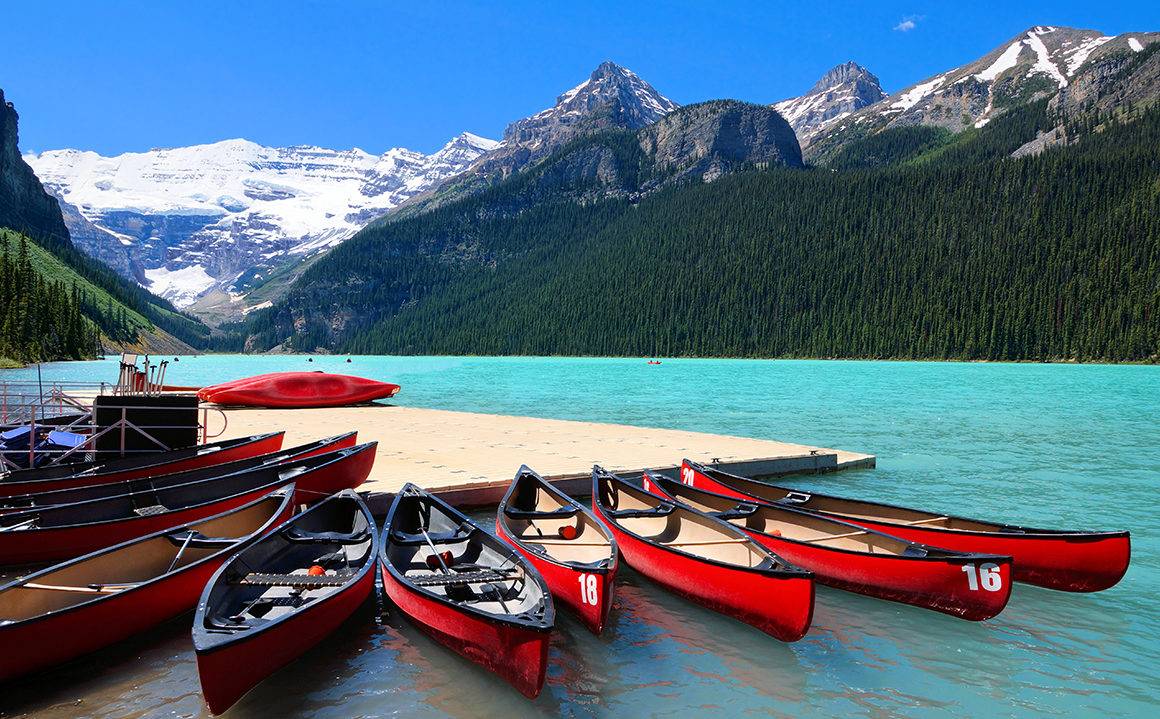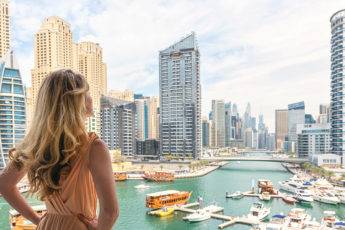In 2021 Luxury Travelers Helped the Industry Rebound

Throughout the peak of the pandemic crisis of 2021, luxury travel brands and high-income travelers held the line. Globetrotting CEOs and celebrities kept high-end hotels afloat, helping to salvage the hospitality sector. As economies and travel around the world return to pre-pandemic levels, both the future of luxury and mainstream travel appear bright.
In 2019, luxury travelers spent $363 billion; luxury travel includes exclusive, five-star resorts and premium leisure travel—high-end cruise ships, upper-upscale resorts, and private sightseeing tours all count. But, of course, 2020 and 2021 saw a slump in all hospitality industry sectors, except luxury travel.
A survey found that in April 2021, U.S. luxury travelers planned to take four trips during the year, despite widespread lockdowns, mandates, and travel restrictions. Moreover, premium and luxury cruises attracted U.S. travelers during the height of the pandemic.
According to an American Express Trendex poll, 61% of the respondents planned to spend more on travelers over the coming year. The poll included respondents from the U.S. and Canada, Great Britain, Australia, Japan, India, and Mexico.
The worldwide lockdowns resulted in households saving $5.4 trillion more than they usually would have. Furthermore, the wealthiest 40% of Americans hold nearly two-thirds of that. Only 18% of American travelers report that their financial situation would stop them from vacationing.
As you can see, pandemic restrictions are not enough to stop luxury travelers from enjoying themselves. And according to Marina Turea of Digital Authority Partners, luxury brands have adopted a sophisticated digital marketing strategy that defies borders. The result has been a new breed of elite, globe-trotters who feel at home anywhere in the world.
The Future Looks Bright for Luxury Brands
Looking at all types of luxury properties, the percentage of luxury stays was a consistent 6% to 7% percent every year. But, in 2020, at the peak of the pandemic lockdowns, that number rose to 9%. Moreover, bookings for the top 25% of hotels continue to trend upward. If this trend continues, it indicates that the luxury market will grow.
The upward trend of luxury travel is not just for hotels. Vacation home rentals also boomed, with a 28% jump in dollars spent per reservation. Demand for vacation villas has been robust in the Caribbean, with an 80% increase in high-end bookings.
The increased interest in luxury, Caribbean vacation home rentals could be due to the social distancing and face-covering rules at hotels worldwide. Luxury villas provide a private experience away from the crowds.
The needs and desires of luxury leisure travelers have changed due to the pandemic. In addition, increased privacy and health and safety issues have come to the forefront with elite travelers. Spa services and private yoga sessions have also seen a spike in bookings.
Today, luxury travel doesn’t mean indulging in rich experiences but rather a break to reconnect holistically.. After two years of lockdowns in the cities, luxury outdoor adventure tours and glamping experiences also surge.
Digital Tools for Elite Remote Workers
At least half the year, Billionaire Facebook CEO Mark Zuckerberg works remotely from his massive Hawaiian estate. While Zuckerberg sequesters himself on a private island, other elite remote workers have followed suit with luxury rentals.
Luxury brands have provided their guests with secure, high-speed internet and digital concierge services to keep pace with the trend. This service allows elite remote workers to get the assistance they desire without human contact.
There has been an exclusive tribe of elite “digital nomads” for many years, like Elon Musk. But now, millions of well-paid remote workers can enjoy the digital nomad lifestyle. According to ZipRecruiter, the average American remote worker earns $89,178 per year. While that pales compared to what Zuck or Elon makes, that’s near twice the U.S. average. And many of these remote workers are traveling.
So, as the trend towards remote work continues, the better-paid remote workers may gravitate towards luxury travel experiences. Some may even take a cue from Elon Musk and go 100% nomad.
Air Travel Remains Down
While first-class air travel remains steady, coach-class air travel is down. That’s understandable, considering the pandemic restrictions and mask mandates.
As a result of the pandemic restrictions, travel by private jet soared by as much as 80%. Most of this increase was by first-time leisure travelers jetting to Aspen or the Carolina Coast. Leisure travel by private jet jumped by 300%. Of course, only the most elite travelers can afford to charter a private plane for a vacation.
Within the luxury travel industry, the idea of shared and private aviation services is taking hold. These are membership-based personal air services that offer mask-free, hassle-free travel. One such service is Aero, which provides flights to glamorous destinations from its private terminals.
However, Qatar Airways, some airlines see a considerable increase in first-class travelers as business travel tapers off.
Also, many travelers avoided international travel for luxury domestic travel to avoid testing, proof of vaccination, and the risk of a prolonged, enforced quarantine—Florida, Aspen, and Martha’s Vineyard, and destinations that benefited from the pandemic.
Wealth Doesn’t Cure Pandemic Travel Woes
While the wealthy can charter a private jet and rent a vacation villa, some places in the world are still somewhat inaccessible. For example, while Zuckerberg can travel freely to and from Hawaii, ordinary people will have more difficulty.
To enjoy a Hawaiian vacation, you’ll need to complete the State of Hawaii’s Safe Travels form, upload your COVID-19 test result or proof of vaccination and download a QR code before your departure. If not done, or if you have an inconclusive test, you’ll need to quarantine for at least five days. The process is quite complex, and many travelers are likely to feel the inconvenience and risk of quarantine is not worth it.
Likewise, traveling to or from Australia and New Zealand remains highly problematic. While European travel restrictions have eased, some EU countries require a “vaccine passport” to enter a restaurant, nightclub, public transportation, or even a ski lift. Austria and Germany have some of the most onerous restrictions, including quarantines.
The luxury travel sector in Latin America has also suffered. The prolonged shutdowns and lack of revenue forced many family-owned resorts to close permanently.
During the next few years, the travel industry will not need to recover but restructure. As a result, many of the changes have become permanent over the last two years. Likewise, as the hospitality industry adjusted to the “new normal,” many of those changes have also become permanent.
Share via:





Leave a Comment